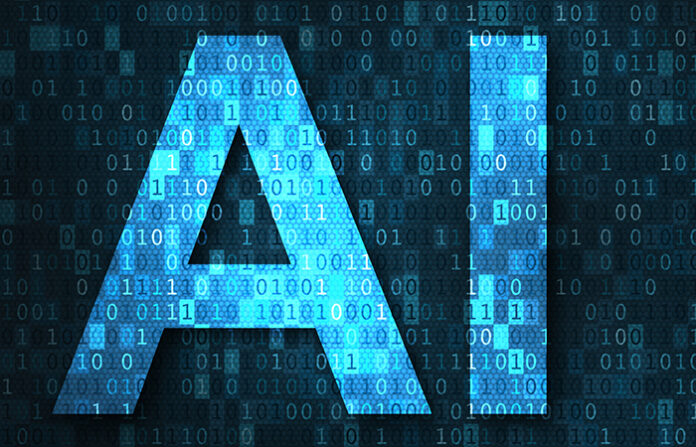HR has evolved significantly in recent years thanks to the integration of artificial intelligence technologies. AI has the potential to revolutionize HR processes, making them more efficient, data-driven and objective. However, with great power comes great responsibility, and the importance of AI compliance in HR cannot be overstated.
With organizations leaning heavily on AI-powered solutions, upholding ethical and legal standards has taken center stage. HR departments are instrumental in this endeavor, collaborating with the chief compliance officer to craft robust policies and manage the potential risks linked to shadow AI.
The growing role of AI in HR
HR professionals are familiar with the complexities of managing a diverse workforce, recruiting top talent and ensuring a positive employee experience. AI has the potential to enhance these processes by automating routine tasks, improving candidate sourcing and providing data-driven insights for strategic decision-making.
Yet, as AI becomes increasingly integrated into HR, it raises important questions about compliance with ethical and legal standards. Leading organizations will strike a balance between leveraging AI’s capabilities and adhering to ethical guidelines and legal regulations.
The chief compliance officer: a crucial ally
The CCO is a crucial figure in any organization responsible for overseeing and ensuring adherence to regulatory requirements and ethical standards. In the context of AI in HR, the CCO becomes a critical ally.
One of the primary roles of the CCO is to establish and maintain a comprehensive AI compliance framework. This framework should include guidelines, policies and procedures that address AI’s ethical and legal implications in HR. Yet, to be successful in their role, the CCO must closely collaborate with HR professionals and AI specialists to align these policies with the organization’s goals and values.
A pivotal responsibility of this partnership is developing and implementing comprehensive AI compliance training programs. These programs educate employees about the ethical use of AI, legal requirements and the potential risks associated with non-compliance. Moreover, they ensure employees possess the knowledge and skills to interact with AI technologies effectively.
Moreover, the CCO can help ensure transparency and accountability in AI-driven HR practices. They can lead efforts to monitor and assess the ethical implications of AI algorithms, data collection and decision-making processes, ensuring no discriminatory or biased practices occur. By building a solid collaboration, HR can gain valuable insights and guidance to keep AI-driven HR processes compliant.
The challenge of ‘shadow AI’
“Shadow AI” refers to using AI applications within an organization without proper oversight, management or compliance measures. It’s a challenge many organizations face as AI technology becomes more accessible and widespread. In the HR context, shadow AI can pose significant risks.
One of the primary risks associated with shadow AI is a lack of transparency and control. For example, due to a lack of transparency, AI algorithms used in recruiting might inadvertently introduce bias or discrimination into the hiring process, leading to legal consequences and damage to the organization’s reputation. And when HR professionals or other employees use AI tools or applications without proper oversight, there is a higher probability of ethical and legal violations as the business lacks control.
To mitigate the risks associated with shadow AI, the CCO and HR teams can work together to establish a clear protocol for evaluating, approving and monitoring AI applications in HR. Companies should regularly conduct audits and assessments to identify any instances of shadow AI and take steps to bring them into compliance with established guidelines.
See also: Biden executive order on ‘trustworthy AI’: What HR needs to know
Employee training: a cornerstone of AI compliance
AI compliance in HR isn’t solely the responsibility of the CCO or HR professionals. Employees at all levels of an organization play a role in maintaining compliance. As such, comprehensive training on AI ethics and best practices should be an HR-led cornerstone of any AI implementation.
Employee training should cover various topics, including the ethical use of AI, data privacy and the potential consequences of non-compliance. It is essential to empower employees with the knowledge and skills they need to recognize unethical or non-compliant AI practices and report them appropriately.
Fostering a culture of ethical AI use is vital. Employees should feel encouraged to voice concerns and raise questions about the ethical implications of AI in the business, including HR. To facilitate ongoing discussions and learning, the organization should establish regular training sessions, workshops and communication channels. Pro note: Review existing training, policies and other materials to ensure they include necessary AI-related updates.
Transparency and accountability: pillars of ethical AI
Transparency in AI operations is non-negotiable when it comes to compliance. In collaboration with the CCO, HR teams can implement policies that require AI algorithms to be explainable and interpretable. This ensures that employees understand the rationale behind AI-driven decisions, which is crucial for maintaining trust and accountability.
Empowering employees in the age of AI
HR’s role in AI compliance extends beyond policy development. It also involves fostering a culture of responsible AI use among employees. This can be achieved through continuous education, open communication channels and providing avenues for reporting potential compliance breaches related to AI.
HR departments collaborating effectively with the CCO create channels for employees to voice their concerns or seek clarification regarding AI-related matters. This proactive approach empowers the workforce to actively participate in maintaining ethical AI practices and reinforces the organization’s commitment to compliance.
In the era of AI integration, compliance with ethical and legal standards is not just a priority but a strategic imperative. The HR function plays a pivotal role in establishing and enforcing policies that ensure responsible AI adoption. From comprehensive training programs to transparent AI operations, HR’s involvement is indispensable in mitigating organizational risks associated with AI.
The future of HR is undoubtedly intertwined with AI, and while AI has much to offer organizations, it is up to organizations to navigate this path responsibly and ethically. By fostering a culture of ethical AI use, organizations can harness the full potential of AI technologies while upholding their commitment to compliance and integrity.



